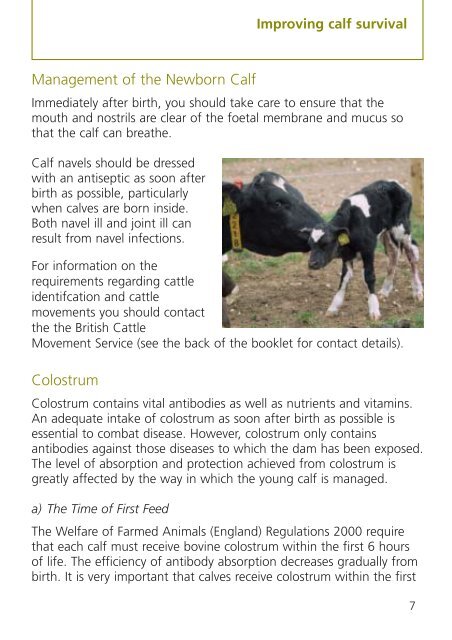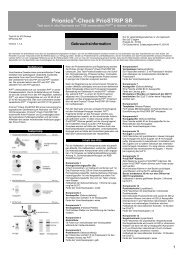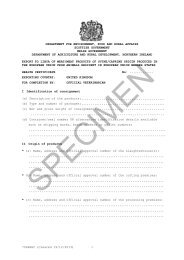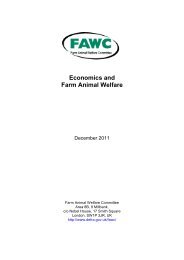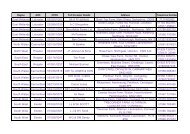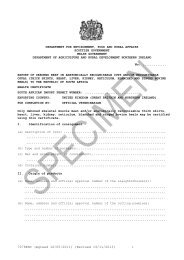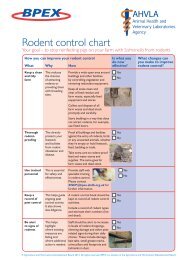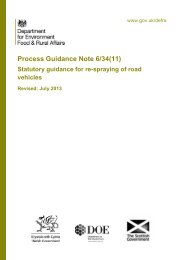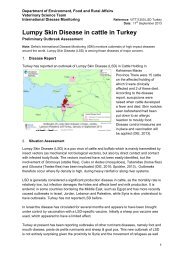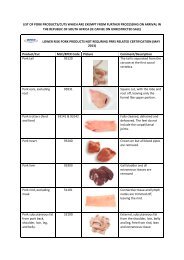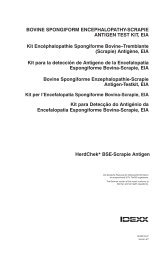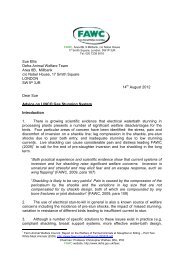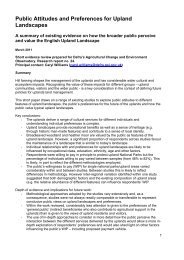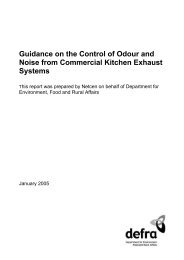Improving calf survival - Defra
Improving calf survival - Defra
Improving calf survival - Defra
Create successful ePaper yourself
Turn your PDF publications into a flip-book with our unique Google optimized e-Paper software.
Management of the Newborn Calf<br />
Immediately after birth, you should take care to ensure that the<br />
mouth and nostrils are clear of the foetal membrane and mucus so<br />
that the <strong>calf</strong> can breathe.<br />
Calf navels should be dressed<br />
with an antiseptic as soon after<br />
birth as possible, particularly<br />
when calves are born inside.<br />
Both navel ill and joint ill can<br />
result from navel infections.<br />
For information on the<br />
requirements regarding cattle<br />
identifcation and cattle<br />
movements you should contact<br />
the the British Cattle<br />
Movement Service (see the back of the booklet for contact details).<br />
Colostrum<br />
Colostrum contains vital antibodies as well as nutrients and vitamins.<br />
An adequate intake of colostrum as soon after birth as possible is<br />
essential to combat disease. However, colostrum only contains<br />
antibodies against those diseases to which the dam has been exposed.<br />
The level of absorption and protection achieved from colostrum is<br />
greatly affected by the way in which the young <strong>calf</strong> is managed.<br />
a) The Time of First Feed<br />
<strong>Improving</strong> <strong>calf</strong> <strong>survival</strong><br />
The Welfare of Farmed Animals (England) Regulations 2000 require<br />
that each <strong>calf</strong> must receive bovine colostrum within the first 6 hours<br />
of life. The efficiency of antibody absorption decreases gradually from<br />
birth. It is very important that calves receive colostrum within the first<br />
7


